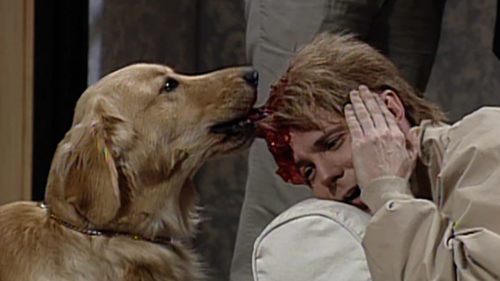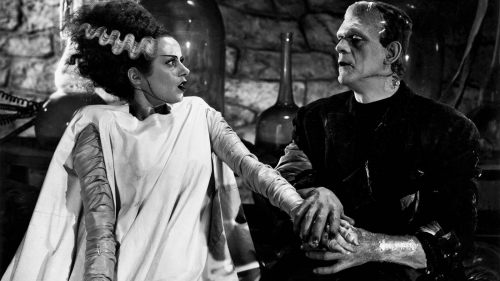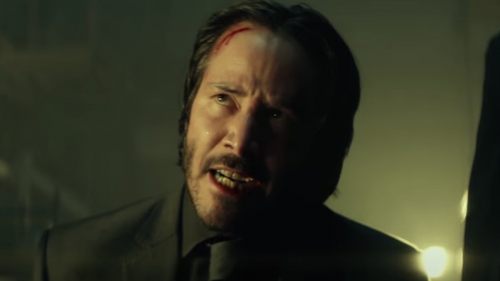Wander Forever Between The Winds: A Tribute To PARIS, TEXAS
“When I look at a map, it turns into an allegory for the whole of life. The only thing that makes it bearable is to try to mark out a route, and follow it through the city or country. Stories do just that: they become your roads in a strange land, where but for them, you might go to thousands of places without ever arriving anywhere.” — Wim Wenders, The Logic of Images
“…among them watching me approach, then watching me recede, shaking my head and saying, Is it really he, can it possibly be he, then moving on in their company along a road that is not mine either, or remaining alone where I am, between two parting dreams, knowing none, known of none…” — Samuel Beckett, Texts for Nothing
“The road’s what counts. Just look at the road. Don’t worry about where it’s goin’.” — Sam Shepard, The Tooth of Crime
Paris, Texas opens with a man born out of the desert, a landscape so otherworldly and desolate there isn’t even a cactus flower in sight. The man is Travis Henderson, played with pathos by Harry Dean Stanton, the embodiment of American moroseness and masculinity. In John Ford’s The Searchers, John Wayne explains that the Comanche believe that a man without eyes can’t enter the spirit land and is fated “to wander forever between the winds,” and Travis appears to be one of these doomed wanderers. Unlike John Wayne emerging from the desert when The Searchers begins, there’s no family waiting for Travis. His face is weathered, suit disintegrating, feet wrapped in cloth, like a Biblical figure in a baseball cap. Walter Hill once said that Jorge Luis Borges suggests there are only two stories: The Odyssey and the Crucifixion. By the look of Travis, his crucifixion is behind him, and the story of Paris, Texas is his Odyssey, his journey from ruin to redemption.
After reentering civilization, Travis collapses in a roadside cafe, and a shady doctor calls his brother Walter (Dean Stockwell) from a place near the border called Terlingua. Walter finds that Travis has changed, he’s mute and childlike. His first word to Walter is “Paris.” He tells Walt that Paris, Texas is the place where their parents first made love, and it’s where Travis believes he was conceived. He bought an empty lot there, and he shows Walt a crumpled photo: “That’s where I began.” His backstory slowly reveals itself: Travis has been gone for four years, and he left a family behind. Walt and his wife Anne (Aurore Clément) took in Travis’s 7-year-old son Hunter (Hunter Carson). No one knows where Travis’s young wife Jane is.
Travis reconnects with Hunter, and father and son agree to go on a road trip in search of Jane (Nastassja Kinski). Travis dreams of a fresh start with his family on his lot of land in Paris, Texas. Director Wim Wenders had planned to shoot the film all over the U.S., but writer Sam Shepard had told him: “You can find the whole of America in the one state of Texas.” Wim Wenders would later acquiesce: “Everything I wanted to have in my film was there in Texas—America in miniature.”
Wenders had initially wanted Sam Shepard to write and star in his film Hammett. Shepard had declined, but Wenders’s desire to collaborate with Shepard persisted. Their chance finally came when Wenders drafted an adaptation of Sam Shepard’s Motel Chronicles. Shepard took over the script, which became Paris, Texas. While Shepard was busy shooting Country with Jessica Lange, Hunter Carson’s father L.M. Kit Carson helped shape some of the script with Shepard’s permission. Shepard had two versions of the film’s second half in mind: one featuring Jane’s father as an oilman whose henchmen beat up Travis and kidnap Jane and put her in a Houston penthouse. The other version had Jane’s mother “under the spell of a televangelist” whose henchmen beat up Travis and kidnapped Jane and put her in a whorehouse. They wanted John Huston to play Jane’s father. But Carson hated both versions, and his breakthrough with Wenders was that Travis and Jane should be responsible for their family’s dissolution — they did it to themselves.
Though Wenders and Carson helped write Paris, Texas, the story belongs to Sam Shepard. In the 2012 documentary Shepard & Dark, a real-life version of Paris, Texas unfolds. Sam Shepard was guarded in interviews, but his life was in his work, and it’s in the script of Paris, Texas: Shepard’s fear of flying, an alcoholic father, an unhappy mother. Shepard’s best friend Johnny Dark had married an older woman, and Shepard had married Dark’s wife’s daughter. Shepard and his wife had a son, and they all lived together as a family for several years. In 1983, Shepard left them for Jessica Lange. Walt’s and Trav’s relationship paralleled Shepard’s and Dark’s friendship, and Dark believed that the good brother/bad brother tension in Shepard’s work represented a conflict inside Shepard himself. Shepard recalled his alcoholic father: “He had a real short fuse and a horrible temper, which I think I probably inherited as well. I’m always a little bit scared of it, you know.” Both him and Dark had critical, hard fathers, and Shepard had sympathy for the women who had to deal with men like them.
In a moving monologue from the documentary that could have come straight out of Paris, Texas, Shepard remembers: “I thought I had done my level best. Done everything I possibly could not to become my father. Gone out of my way in every department. Changed my name, first and last. Falsified my birth certificate. Deliberately walked and swung my arms in exact counterpoint to the way he had. Picked out clothing the opposite of what he would have worn, right down to the underwear. Spoke without any trace of a Midwestern twang. Never kicked a dog in the ribs. Never lost my temper over inanimate objects. Never again listened to Bing Crosby after the Christmas of 1959. And never, ever hit a woman in the face.” Johnny Dark explained that there was a period of time where Shepard endlessly wrote about his father. Dark’s wife used to say Shepard was “very lost.”
Shepard imbued Travis with his lostness. The character carries it with him as he returns to a changed world, where desert and roads became streets full of billboards. Travis thinks they are beautiful, but billboards are meaningless images — Wenders called them an “optical toxin.” And Paris, Texas is about the disparity between image and reality. Travis’s first look into a motel-room mirror inspires disgust, and he runs back to the wilderness, not quite ready to face himself. By the story’s middle, in a scene improvised by Harry Dean Stanton and Socorro Valdez, Travis flips through magazines for photographs of fathers, and he asks Walter’s housekeeper what a father looks like. He chooses to dress like a “rich father,” and Travis enjoys seeing Hunter reflecting in himself as Hunter mirrors his movements on the way home from school.
Travis finally faces Jane — and himself — during their reunion in the peepshow where she works in Houston. In these scenes, cinematographer Robby Müller insisted on using a real one-way mirror to divide the actors, with Kinski sitting in a tiny themed room (‘poolside’ and ‘coffee shop’), unable to see Stanton, their only connection: the telephone on his side, a speaker on hers. Kinski and Stanton loved their monologues so much, they memorized every single line, wanting to perform it exactly as Sam Shepard had written them. Stanton would stop if he messed up just one line, and they’d start all over again.
Wim Wenders explained why he chose Nastassja Kinski for Jane’s role: “It has to do with a subtext in the movie, which is a man insisting on a certain image of a woman. [ . . . ] I’ve followed Nastassja’s career and seen her films and some of them were painful to me because I felt there was someone who was trapped. There’s a really great actress, and she’s totally exploited because of her image.” Wenders felt casting Kinski as Jane might free her from the image. At the scene’s start, the glass is a one-way mirror: Nastassja/Jane is still the image, an object, a thing to be observed and possessed. During Jane’s and Travis’s interaction, the glass becomes a window: Travis sees Jane, as if for the first time, and then he sees his reflection, which merges with her image. Travis lets go of his perception of Jane and accepts who she really is, and who he is. The peepshow becomes a roadside confessional.
The film’s title Paris, Texas crystallizes its tensions: between generations, brothers, the past and the present, men and women, the dream and the reality, our conflicting need for solitude and for companionship. It’s in the dissonance between Travis’s father’s perception of Travis’s mother: Travis tells Hunter that his own father used to embarrass the family with a joke — he would tell people that he met Travis’s mother in Paris, pausing before he said “Texas” so they would briefly think that he meant France. Travis alludes to his father’s “sickness”: Travis’s father started to believe that his wife was from France.
The idea of frontiers defines the American dream, the myth of being reborn somewhere new. But there’s no such thing as “somewhere new,” the past still haunts Paris, Texas. Travis is reborn during his four-year quest, but he’s not a new man — he’s a man who recognizes that he’s destined to repeat the past, who feels his cruelty can’t be forgiven. Paris, Texas is one man’s story, but it’s also about America’s legacy of violence, the failure of the American dream, and the western myth of masculinity. It’s an indictment of men’s destructiveness. Wenders and Shepard subvert the romanticized trope of Man-with-No-Name macho silence — it’s not strength that keeps Travis quiet, it’s fear and guilt and brokenness.
In a recording Travis leaves for Hunter, he explains: “I owe it to you to bring you back together. But I can’t stay with you. I could never heal up what happened. That’s just the way it is.” Kit Carson and Wim Wenders agreed that Travis returns from the desert with “the truth.” Travis sees the truth of his family, his past, and himself. He sees that he tore his family apart with violence. For John Ford’s wanderers, home represents respite, a sanctuary. Travis may be fated to wander forever between the winds, but he transcends the past and his father’s legacy with an act of selflessness: reuniting Jane and Hunter and giving them a home.



